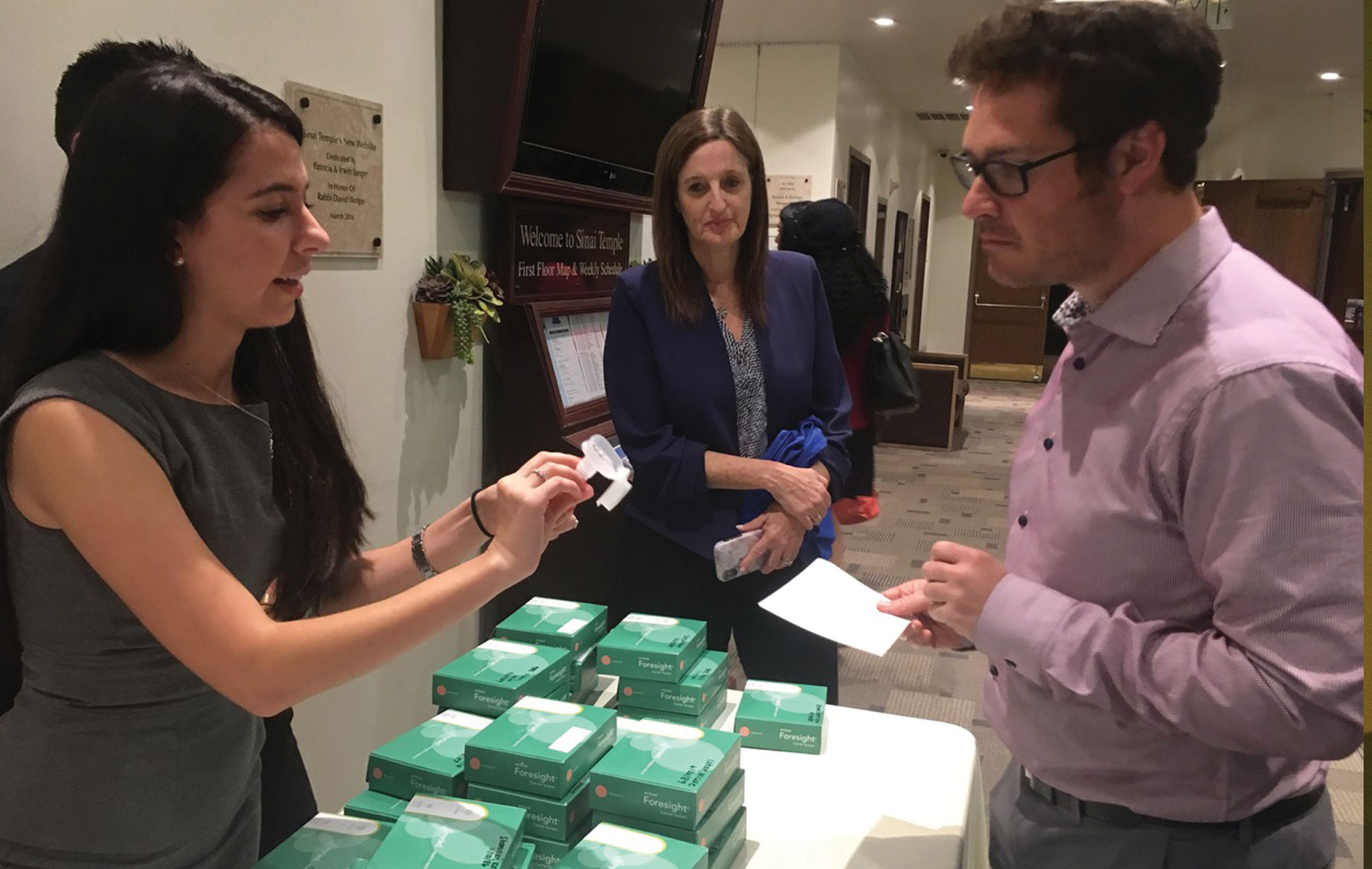 JScreen team member Hillary Kener (far left) explains how to use the nonprofit’s DNA kit to an attendee at Sinai Temple’s Shabbat service. Photos by Ryan Torok
JScreen team member Hillary Kener (far left) explains how to use the nonprofit’s DNA kit to an attendee at Sinai Temple’s Shabbat service. Photos by Ryan Torok Harrison Brown and his fiancée Elana Lavi are already thinking about the health of their future children.
The couple attended Sinai Temple’s Ted and Hedy Orden and Family Friday Night Live services on Nov. 8, designed for those between the ages of 21 and 39. Along with participating in the usual kabbalat Shabbat services, they also took a genetic screening test, courtesy of JScreen.
A nonprofit home education and carrier-screening program focusing on Jewish genetic diseases, JScreen tests for more than 200 genetic diseases, including Tay-Sachs disease, Gaucher disease and cystic fibrosis. In couples where both partners are carriers of the same genetic disease, there is a 25% chance their child will become a carrier.
“I eventually want to plan a family and I think knowledge is power with these kinds of things,” Brown, 31, told the Journal. “Since we just got engaged, we want to ensure we make smart decisions when planning for a family. We’re lucky we had the opportunity to do this.”
Those who planned to take the test at Sinai Temple received instructions beforehand not to eat, drink or smoke 30 minutes prior to the test being administered. Once at Sinai, they were given a DNA “spit kit” to fill a tube with saliva. Some felt comfortable doing it right in front of the JScreen booth, which was set up at the entrance to the Shabbat service, while others headed to the bathroom to do the test in private.
“I eventually want to plan a family and I think knowledge is power with these kinds of things.” — Harrison Brown
Participants then handed over their tests to Hillary Kener, director of national outreach and marketing for JScreen, and were told they could retrieve their results in the coming weeks from a genetic counselor either by phone or via teleconference.
Kener told the Journal that Sinai Temple, a Westwood congregation that attracts many Iranian Jews, was a good venue for offering the tests because there is a misconception that only the Ashkenazi community is affected by Jewish genetic diseases. JScreen is also for Mizrahi and Sephardic Jews, she said.
The evening was part of an effort by JScreen, which works with Emory University in Atlanta, to ramp up its Los Angeles presence and reach those who are around the age of marrying or having children. JScreen partnered with the Neuromuscular Disease Foundation for the event, which subsidized the tests for people who registered in advance.
Zack Richeimer was among those who took advantage of the opportunity. “I am interested in doing this because I plan on marrying Jewish,” he said, “and it seems like the ethical and responsible thing to do.”























 More news and opinions than at a Shabbat dinner, right in your inbox.
More news and opinions than at a Shabbat dinner, right in your inbox.